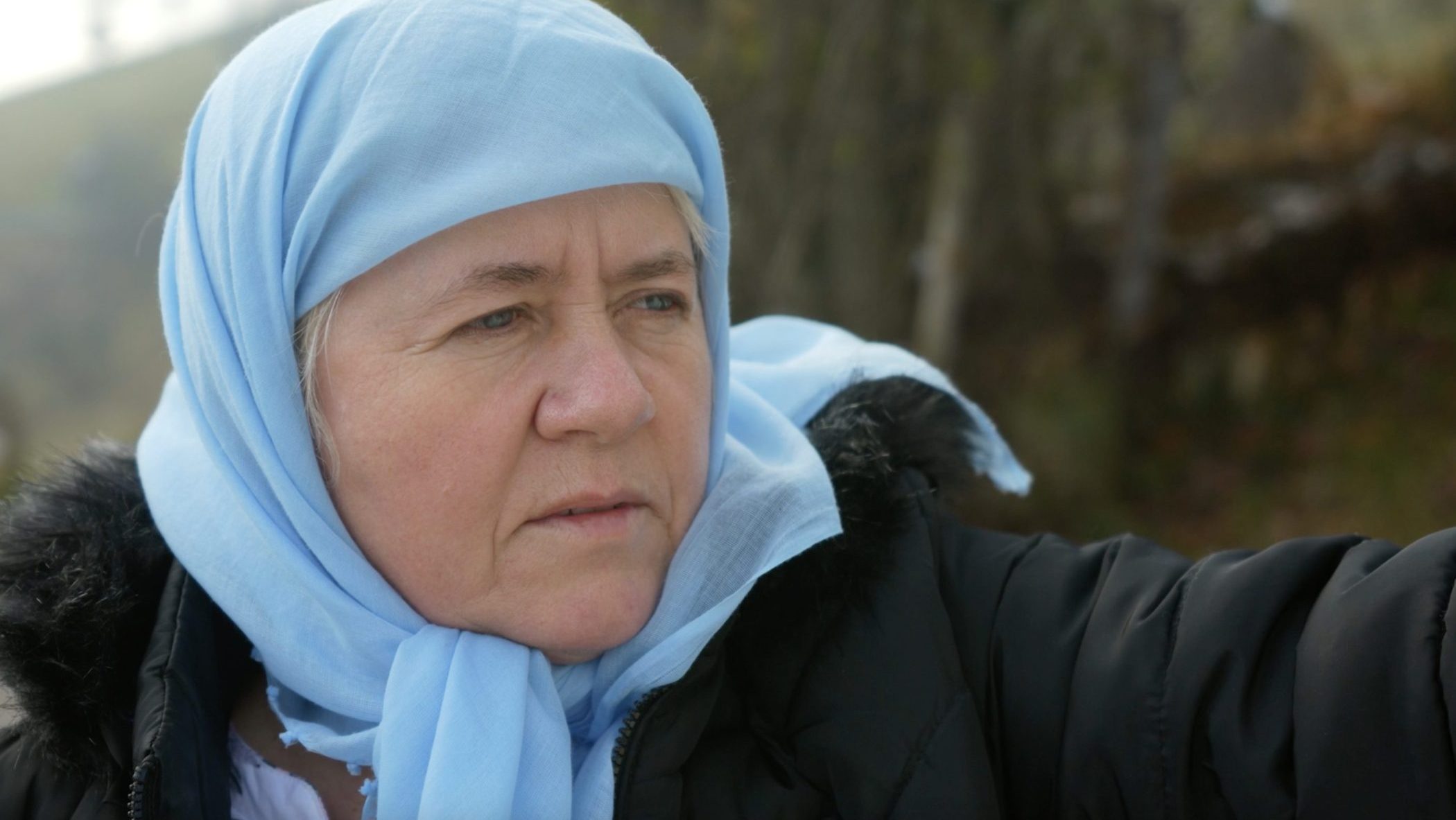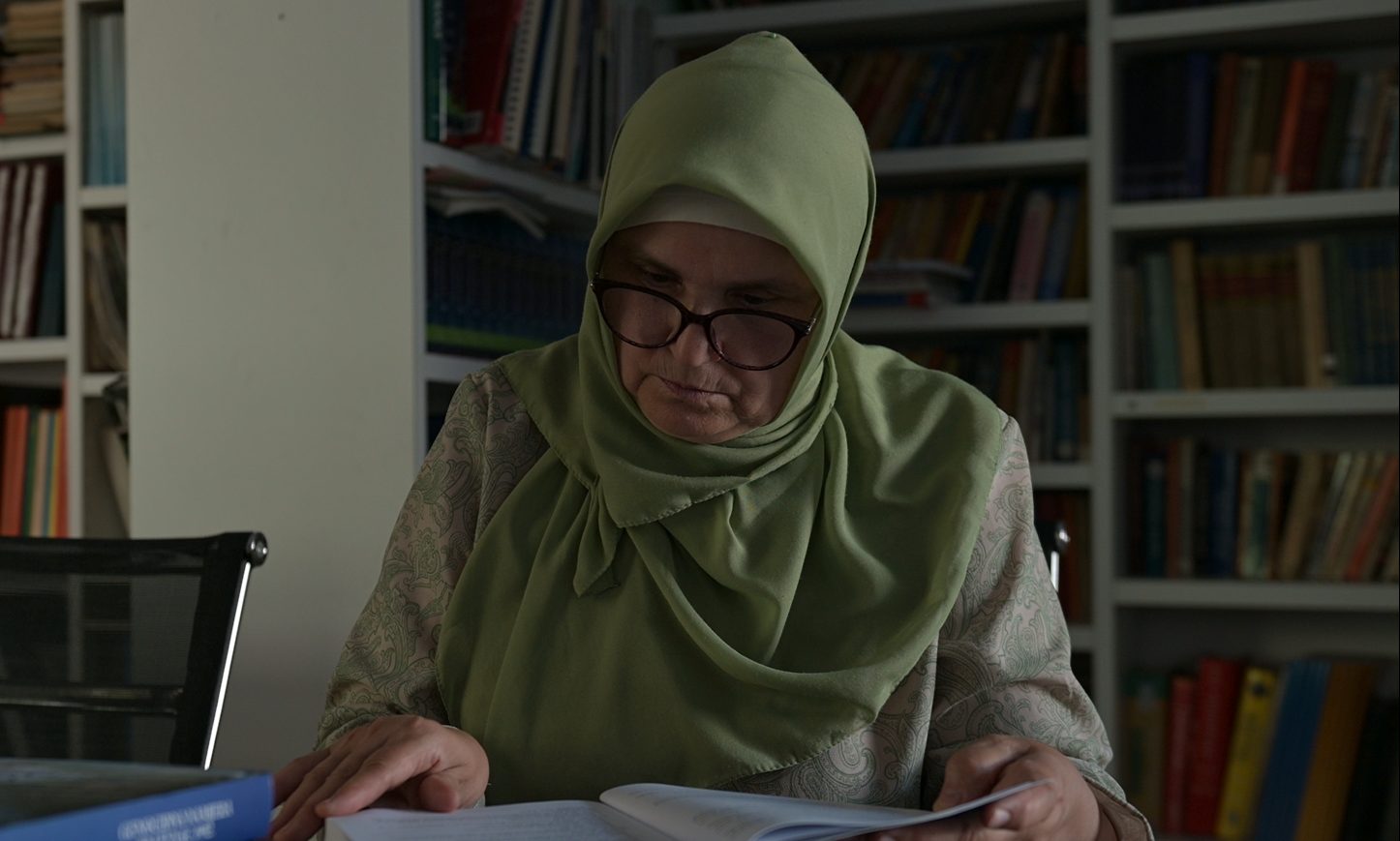This post is also available in: Bosnian
“Radovan is a good man. He did what all of us would have done to defend our fellow Serbs,” Simeon Karadzic, the former Bosnian Serb leader’s cousin, tells BIRN.
A 65-year-old pensioner, Simeon lives in the tiny Montenegrin village of Petnjica, where Radovan Karadzic was born, and where his relatives say that this week’s verdict at the Hague Tribunal will only tell them what they already know – that the UN court was set up to punish Serbs.
Petnjica is an isolated village in the western mountains of Montenegro, about 110 kilometres from the capital Podgorica. Here Karadzic is a local hero, a clever village boy who went to the city and made good.
The Hague Tribunal will rule on Thursday on whether Karadzic was responsible for masterminding the genocide of Bosniaks from Srebrenica in 1995 and in seven Bosnian municipalities in 1992, the persecution of non-Serbs across the country, terrorising the besieged population of Sarajevo and taking UN peacekeepers hostage.
Prosecutors have demanded a life sentence for what one of the Hague Tribunal judges called “scenes of unimaginable savagery… truly scenes from hell, written on the darkest pages of history”.
But people in Petnjica don’t really want to talk about that; they agree with Karadzic, who insists that he is innocent.
“It’s very hurtful what they say,” Simeon complains, refusing to hear about the charges against the man he recalls playing with as a child.
‘Spies’ and bounty-hunters
Everyone in the village shares the surname Karadzic and none of them are happy to welcome reporters. Simeon says that locals are “sick of them”.
Dozens of journalists have visited the village, which only has a few houses – of which just three are permanently inhabited.
Most of the villagers refuse to talk about the former Bosnian Serb leader’s wartime history. Some said they weren’t sure if the visiting journalists were reporters or intelligence agents because of the many law enforcement officials who came to Petnjica while Karadzic was on the run for over 12 years.
For a lot of that time, rumours circulated that he was hiding in a cave in the mountains near the village, so Montenegrin police frequently visited the area until 2008, when he was arrested in Belgrade.
“Some of them were coming because they wanted the $5 million offered for his head ,” one villager says angrily, identifying himself as Karadzic’s cousin but refusing to give his name.
“I’m proud to call myself a Karadzic. This is a noble family: we have produced dukes and warriors, writers, heroes,” he insists.
Son of an absent father
Radovan Karadzic was born on June 19, 1945 in Petnjica, to Vuko and Jovanka Karadzic. His father was in prison during his early years, serving time for activities during World War II. His father had been a member of the Chetniks, Serb nationalist guerrillas who fought against both Nazi occupiers and Tito’s Communist partisans.
His father was in jail for much of his son’s early childhood. Locals in Petnjica say that Vuko only saw him for the first time when Radovan was five.
The young Radovan was intelligent, well-behaved and handsome, Simeon insists: “He was as pretty as an apple.”
His mother, Jovanka Karadzic, once described her son as loyal and a hard worker who used to help her at home and in the fields. She said he was a serious boy who was respectful towards the elderly and helped his school friends with their homework.
Jovanka died in 2005 and was buried in the town of Niksic, where the family moved in the 1950s and where Radovan and his two brothers went to primary school.
His brother Luka was a postman in Niksic, then moved to Belgrade in the early 1990s when Radovan, who had graduated in medicine and worked as a psychiatrist, went into politics with the nationalist Serb Democratic Party in Sarajevo. His other brother Raco still lives in Montenegro, in the capital Podgorica.
His relatives in Petnjica point out the house where Karadzic was born is located. It is now a ruin, but next to it and still intact is his uncle’s house, where he spent his summers while he was a student.
Radovan wanted to restore the house, but the war interrupted his plans, says Simeon.
“I often visited him in Sarajevo, slept in his apartment. He helped everyone as much as he could. Especially while working at the hospital,” he says.
Poet and psychiatrist
On the wall of Simeon’s house hangs a family tree dating back to 1642, with hundreds of names.
He points out one central character to whom his cousin is directly related: Vuk Karadzic, a well-known 19th-century Serbian writer, who drew up a system of phonetics fundamental to the Serbo-Croatian language.
“Radovan inherited his literary talent,” Simeon says. As well as being a psychiatrist, Karadzic was a prolific poet. “That is why we built a venue here for a biennial international Karadzic literary festival,” he adds.
Simeon also shows off a small chapel built in the 13th century and the cemetery where only Karadzics are buried.
But he stops short of mentioning that Radovan Karadzic’s father was ostracised by his family after being accused of raping and killing a cousin, and that his grandfather murdered a neighbour in an argument over stolen oxen.
Perhaps to escape all this, Karadzic, a bright student, left Montenegro for Sarajevo.
He settled in the Bosnian capital in 1960, where he studied medicine and met Ljiljana Zelen, who he married three years later.
Karadzic also sought out artists, writers and intellectuals. In 1968, after graduating, when Europe was in gripped by student revolt, he led a student demonstration in Sarajevo.
From the roof of the philosophy department, he gave an eloquent speech with Serbian nationalist overtones.
In 1974, he won a literary scholarship to Columbia University in New York, where he learned to speak English fluently. However, it is a language that he refuses to speak in court in The Hague. “I’m not going to defend myself in a NATO language,” he has said.
Simeon also believes that the court in The Hague is biased in its case against Karadzic.
“In his case, they cannot be objective. The court was invented because of Serbs. Why is it that only Serbs are blamed for what went on? There was killing on all sides,” he argues.
He says he believes that the decision to convict his cousin was made before the trial even started: “The verdict will be only read on March 24 – it was made 20 years ago.”


